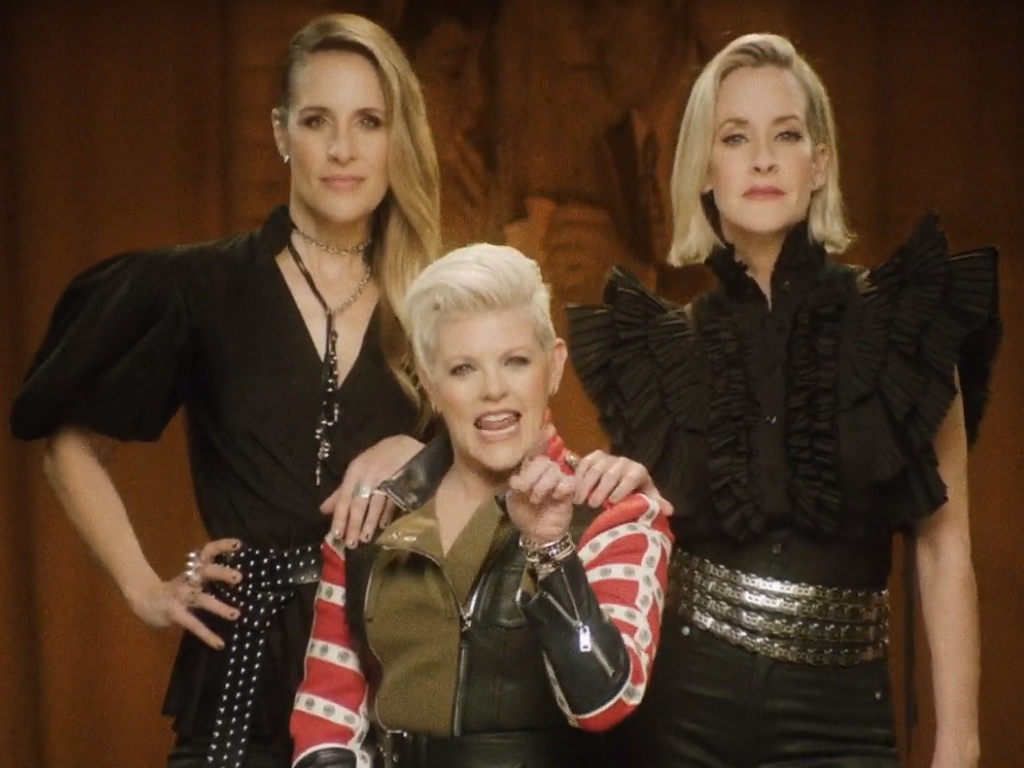American country trio the Dixie Chicks has officially its name to the Chicks in wake of the anti-racism and anti-police brutality protests triggered by the killing of George Floyd last month.

Albeit brief, the Wide Open Spaces hit-makers made the announcement on Thursday (June 25) via an official press release. It reads: “We want to meet this moment.”
Though it was not acknowledged by the Chicks specifically, multiple news outlets (including Variety), reported that the decision followed discussions around the appropriateness and historical associations with the word “Dixie.”
Dixie was used as a name for the Southern/Confederate states in the U.S. during the American Civil War — it came just before the abolishment of slavery in the U.S. in the late 19th century.
Along with their brand new moniker — which many diehard fans have been using as a nickname for the band for years — the Chicks released a brand protest new single called March March, which was accompanied by a powerful music video.
“If your voice held no power, they wouldn’t try to silence you,” reads a quote from an “unknown” source at the beginning of the four-minute video.
The short is jam-packed with photographs and footage captured from not only anti-racism protests from the last century, but those that call for equality and change in favour of women and LGBTQ2 communities.
Towards the end, a list of the names of victims who have died at the hands of the authorities flashes across the screen too — beginning with Floyd’s.
Floyd, a Black man, died on May 25, after a white police officer kneeled on his neck for eight minutes and 46 seconds during an arrest in Minneapolis. He was 46.

Within the last month, his death, and those of many other Black individuals — including Ahmaud Arbery and Breonna Taylor — have helped renew calls to fight systemic racism and put an end to police brutality across the world.

Get daily National news
The demand for change has also made a major impact on the entertainment industry, including the removal of insensitive episodes of popular TV shows like Scrubs and 30 Rock, as well as the cancellation of crime reality series like Cops and Live PD — which, for the most part, glorifies the authorities.
The Chicks weren’t the first group to change their name in lieu of the ongoing Black Lives Matter protests either.
On June 11, the band formerly known as Lady Antebellum announced that it had officially changed its name to Lady A, after being “awakened” to the historical connection to the word “antebellum” — which refers to a period in history pre-dating the Civil War.
The next day, however, a Black musician who has gone by the name Lady A for two decades took to Instagram airing her grievances with the Need You Now rockers, suggesting they did not approach her about changing their name.
“If it mattered, it would have mattered to them before,” the 61-year-old singer told Rolling Stone on June 12.
“It shouldn’t have taken George Floyd to die for them to realize that their name had a slave reference to it,” she added.
Despite her frustrations, both Lady As took to their respective social media accounts suggesting they had resolved the conflict and are now on good terms.
“Today, we connected privately with the artist Lady A,” the musicians wrote in a carbon copy caption. “Transparent, honest, and authentic conversations were had.”
A representative of Lady A, the band, later confirmed to Global News that both artists will continue using the moniker Lady A.
The Chicks, however, seemingly reached out to New Zealand-based band the Chicks before announcing their name change.
“A sincere and heartfelt thank you goes out to ‘The Chicks’ of NZ for their gracious gesture in allowing us to share their name,” the American band wrote in a statement obtained by Global News.
“We are honoured to co-exist together in the world with these exceptionally talented sisters,” they concluded. The statement was signed by Chicks band members Natalie Maines, Emily Strayer and Martie Maguire.
March March serves as the third single from the Chicks’ upcoming eighth studio album, Gaslighter (2020). The song is now available through all major streaming platforms.
Gaslighter, which also features the self-titled hit single and Julianna Calm Down, will be the group’s first in more than 14 years. It is currently set for a July 17 release worldwide.

As of this writing, the Chicks have no scheduled tour dates. Their website, however, suggests they might in the near future. It reads: “Long time gone… but coming soon,” under the tour section.
Any additional updates or information will be provided through the official Chicks website.
— Global News has reached out to a representative of Chicks seeking comment.








Comments
Want to discuss? Please read our Commenting Policy first.